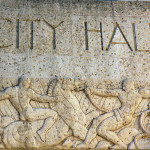 On November 2, 2010 the citizens of Houston passed Proposition one. This amendment to the City charter allows the city to collect at least $125 million annually. The program is to be implanted by July 1, 2011. Council member Stephen C. Costello is the chair of City Council’s Flooding and Drainage committee. His background consists of being a civil engineer and drainage specialist.
On November 2, 2010 the citizens of Houston passed Proposition one. This amendment to the City charter allows the city to collect at least $125 million annually. The program is to be implanted by July 1, 2011. Council member Stephen C. Costello is the chair of City Council’s Flooding and Drainage committee. His background consists of being a civil engineer and drainage specialist.
Rebuild Houston Street and Drainage
There are four sources of funding:
- 1. Developer impact fees for drainage and streets
- 2. Drainage charges initially set at levels to generate at least $125 million annually
- 3. 11.8¢ of the City property tax
- 4. Proceeds from Metro, TxDOT, federal, and other contracts or grants
The city expects Developer Impact fees to be 2%, 3rd party fees 19%, drainage fees 28%, and the taxpayers to pay 51% of the fees. Rebuild Houston has already used aerial imagery, ERDAS software and HCAD to calculate the fee to be paid by each property owner. Fees will be based upon impervious surface.
Possible adjustment will be based upon
- 1. Porous pavement
- 2. Infiltration trenches
- 3. Rain Barrels
Eight of the 10 largest Texas cities have drainage charges. Only two of the cities with drainage charges exempts schools from the charges. None of the 8 cities exempt churches.
The city plans to use existing water bills to charge taxpayers. The city estimates there are 614,000 properties which will be taxed. There are over 200,000 taxpayers who do not get water bills, they will have to be billed separately.
Questions asked by council members:
What about low income families?
A W.A.T.E.R. Fund established to assist low income residents may be used for water, sanitary sewer, and drainage bills.
What do voters think about allowing exemptions?
The taxpayers at town hall meetings according to councilmember Clutterback are in favor of granting no exemptions.
What about the .01$ sale tax collected by Metro to be used for streets?
This money is spent years in advance and will not be available to offset money owed by taxpayers.
What about homes on pier and beam Foundation?
The homeowner should not store water under their home. They are required by building code to move water away from the home and onto a public right of way. Where the city will then remove the water.
How much will each homeowner pay?
Look at the calculator which was used for the drainage charge during the election.
Will this number change now that the Drainage committee know more about the problem?
The actual number can not be determined at this moment.
Does this then mean the number was wrong for the November election?
Since we can not determine the correct number now we could not have determined the correct number then. So the number is wrong and should not be used for determining the payment.
The meeting produced the following conclusions:
- The city is going to collect a minimum of $125 million annually
- There is going to have to be a bureaucracy established to deal with customer adjustments and billing
- The money can be used to pay off existing bonds
- Churches and schools are going to be protesting this proposition
- No one sector can subsidize another such as commercial and residential
- The oversight committee appointed by the mayor and city council will consist of members with experience in construction, engineers, or firms participating in eh street an drainage program. This leaves out the ordinary citizen responsible for the fee.
Bob Price points out in a KHOU/KUHF poll that the proposition was passed by less than 2% of the vote. The proposal basically gives the city a blank check. That this gigantic money grab will benefit special interest groups at the expense of our churches, schools and charities.
Source: City of Houston, Councilmember Stephen C. Costello
Call Bill Edge at 713-240-2949 to see Houston homes in 24 hours or less.